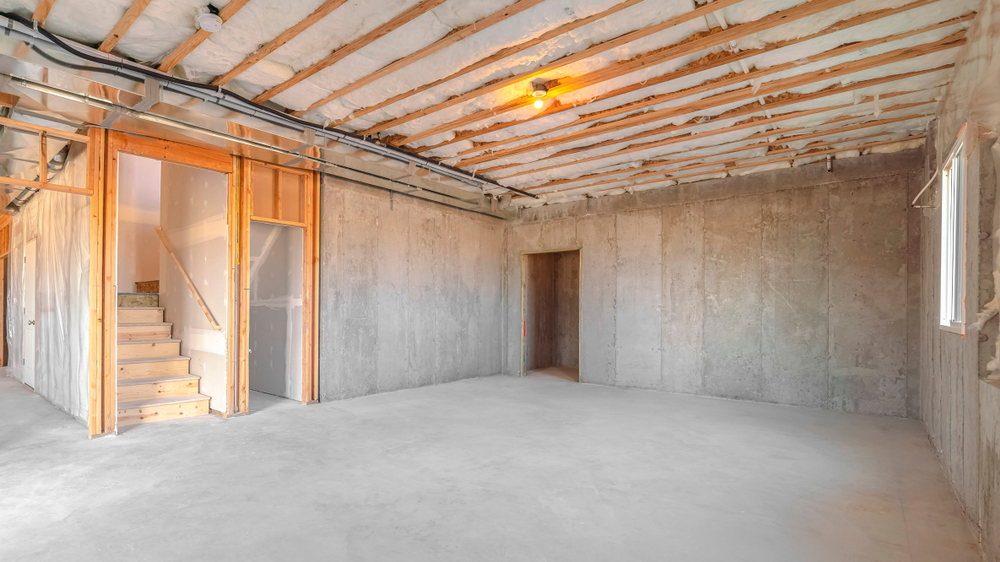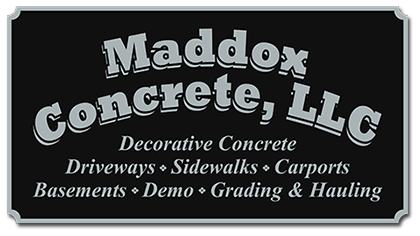
Basements serve as a crucial part of any home, offering storage, living space, or a foundation for your property. The condition of your basement concrete plays a significant role in maintaining the overall health of your home. Knowing how to care for basement concrete ensures durability, safety, and cost-effectiveness over the long run. In this guide, we delve into essential do’s and don’ts to keep your basement concrete in excellent shape.
The Importance of Basement Concrete
Before jumping into the specifics, it’s essential to understand why basement concrete requires special attention. Concrete in basements supports the weight of the house, resists moisture, and provides structural integrity. However, it is also exposed to elements like water seepage, pressure from surrounding soil, and temperature fluctuations, all of which can cause damage.
To avoid costly repairs and maintain a safe, functional basement, it’s vital to follow best practices for caring for and maintaining your basement concrete.
Do’s for Basement Concrete Maintenance
Inspect Regularly
Regular inspections are the first step in maintaining basement concrete. Walk around your basement at least once every few months to look for visible cracks, discoloration, or signs of water damage. Catching small issues early can save you significant money and effort later.
- Tip: Use a flashlight to examine corners and areas behind stored items for hidden issues.
Seal Your Basement Concrete
Sealing your basement concrete protects it from water penetration and increases its longevity. A high-quality sealant prevents moisture from seeping through small cracks and reduces the risk of mold growth.
- Recommended Frequency: Every 2-3 years, or as needed based on wear and tear.
- Key Advice: Ensure the surface is clean and dry before applying the sealant for optimal results.
Control Moisture Levels
Excess moisture is a common culprit behind concrete degradation. Install a dehumidifier in your basement to keep humidity levels in check, especially during the rainy season.
- Ideal Humidity Levels: Maintain 30-50% humidity for a balanced environment.
- Pro Tip: Check for leaks in pipes or windows that might be contributing to moisture buildup.
Address Cracks Promptly
Even small cracks can escalate into serious structural issues if ignored. Use epoxy or polyurethane crack fillers to seal minor cracks before they worsen.
- How to Spot Problems: Look for uneven surfaces or cracks wider than a quarter-inch.
- DIY vs. Professional: While minor cracks can be addressed with DIY solutions, consult a concrete professional for large or growing fissures.
Enhance Drainage Around Your Home
Proper drainage prevents water from accumulating around your basement walls, which can cause hydrostatic pressure and lead to cracks.
- Action Steps: Ensure gutters and downspouts direct water away from your foundation. Use grading to slope soil away from the house.
Use Mats or Carpets
If you use your basement as a living space, place mats or carpets over concrete flooring. These act as barriers against cold and moisture while preventing surface damage from heavy furniture.
Don’ts for Basement Concrete
Don’t Ignore Early Warning Signs
One of the most common mistakes is overlooking the first signs of basement concrete issues. Minor discoloration, tiny cracks, or slight dampness might seem trivial but often indicate deeper problems.
- Key Indicators: Persistent damp spots, musty odors, or flaky surfaces.
Don’t Use Harsh Chemicals
Cleaning basement concrete requires gentle care. Harsh chemicals can degrade the sealant or cause the surface to erode over time.
- Alternative Solution: Use mild detergents or pH-neutral cleaners for regular maintenance.
- Avoid: Acidic cleaners or abrasive materials that can harm the concrete.
Don’t Overload the Floor
Concrete is strong, but it has its limits. Overloading your basement with excessively heavy items can cause stress fractures in the floor.
- Tip: Distribute weight evenly and avoid stacking too many heavy objects in one area.
- Common Culprits: Heavy appliances, large aquariums, or overloaded storage units.
Don’t Allow Standing Water
Standing water is the enemy of basement concrete. It can seep into the material, weaken its structure, and lead to mold or mildew growth.
- Preventive Measures: Install a sump pump and ensure proper drainage.
- Immediate Action: Mop up water spills immediately and identify the source to prevent recurrence.
Don’t Skip Ventilation
Poor ventilation contributes to damp conditions, which can damage basement concrete over time.
- Solution: Install vents or use exhaust fans to improve air circulation.
- Tip: During warm weather, open basement windows to let fresh air flow through.
Don’t Forget Seasonal Maintenance
Basement concrete is subjected to varying temperatures throughout the year. Neglecting seasonal maintenance can exacerbate cracks and other issues.
- Winter: Check for frost heave or cracks caused by freezing temperatures.
- Summer: Monitor for excess humidity and seal cracks as needed.
What to Lookout for with Basement Concrete
Understanding the signs of potential problems with basement concrete is crucial. Knowing what to lookout for with basement concrete helps in taking preventive measures before issues escalate.
Water Stains or Efflorescence
White, powdery deposits on your basement walls or floor indicate efflorescence, which occurs when water seeps through the concrete and leaves behind mineral salts.
- Solution: Seal the concrete and address the source of moisture.
Uneven Floors
Uneven basement floors often result from settling or underlying structural problems.
- Action Required: Consult a structural engineer to evaluate the severity of the issue.
Persistent Dampness or Mold Growth
Mold and mildew thrive in damp conditions, signaling excess moisture in the concrete.
- Preventive Measure: Install vapor barriers and use dehumidifiers to control moisture.
Cracking and Chipping
While small cracks are common, extensive cracking or chipping indicates structural stress or water damage.
- Key Insight: Large cracks often require professional repair to avoid compromising the foundation.
Rust Stains
Rust stains near rebar-reinforced areas of your basement concrete suggest that the rebar is corroding due to water intrusion.
- Recommended Fix: Seal the area and prevent further water exposure.
Long-Term Care for Basement Concrete
Ensuring the longevity of your basement concrete requires consistent effort. Create a maintenance schedule and stick to it, incorporating both seasonal checks and periodic repairs.
Invest in Quality Materials
Using high-quality sealants, fillers, and tools ensures effective repairs and long-lasting results.
- Pro Tip: When in doubt, consult a professional for recommendations on the best products for your specific needs.
Stay Ahead of Problems
Adopting a proactive approach to basement concrete care minimizes costly repairs and keeps your home’s foundation strong.
Educate Yourself
Continually learning how to care for basement concrete empowers you to make informed decisions and address issues confidently.
Caring for your basement concrete doesn’t have to be overwhelming. By following these do’s and don’ts, you’ll ensure your basement remains a safe, durable, and functional space for years to come. Remember to stay vigilant, invest in regular maintenance, and address issues promptly to protect your home’s foundation and overall value.
Need Concrete Contractors in Sanford, NC?
We are the area’s best concrete company. We specialize in concrete finishing of all types of concrete for residential and commercial customers. Our services include pavement, driveways, footings, sidewalks, decorative concrete, hauling, demolition, and property grading. We’re fully insured. Contact us today for quality workmanship and service.

